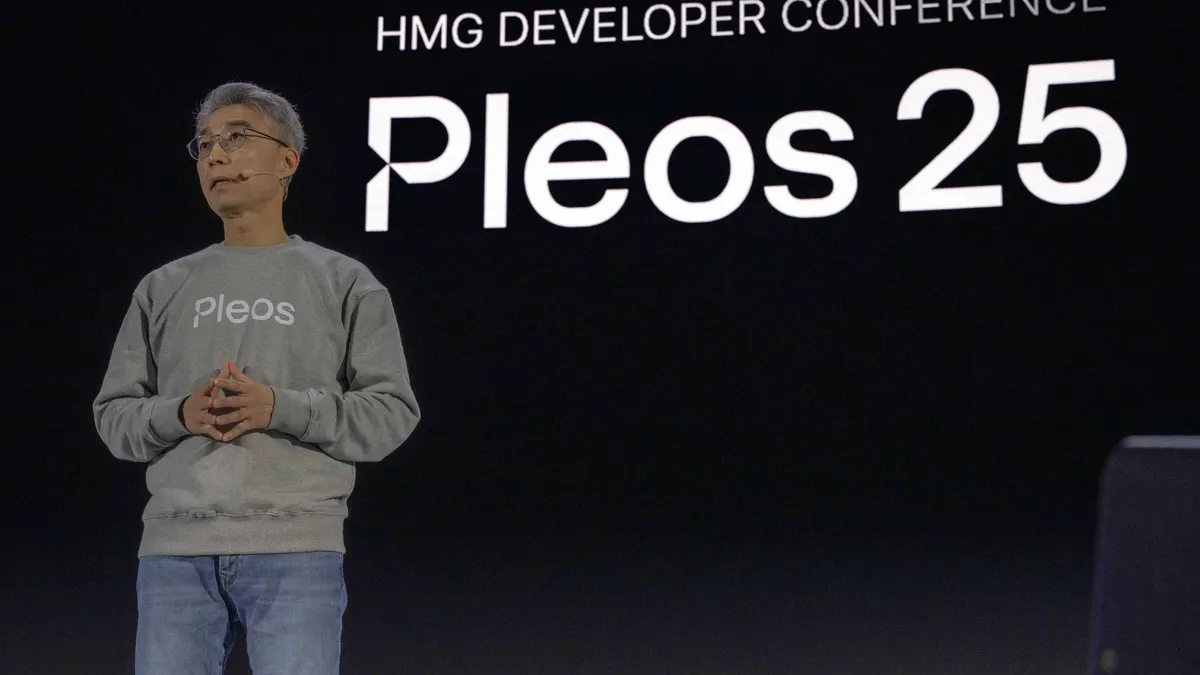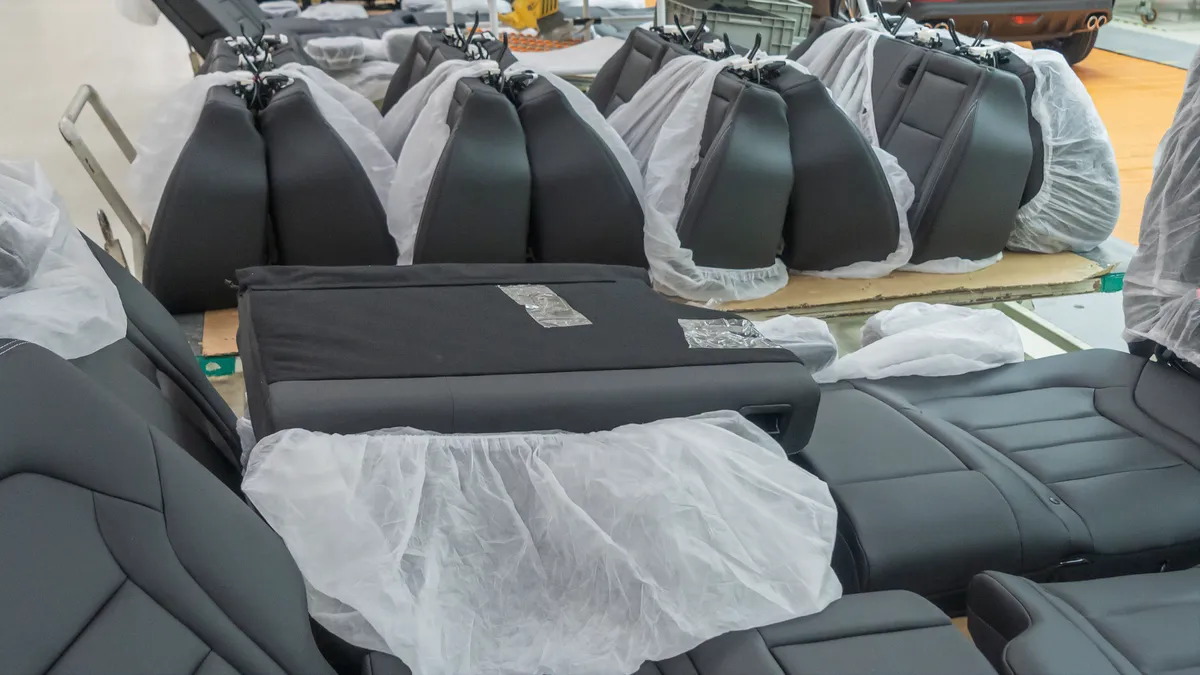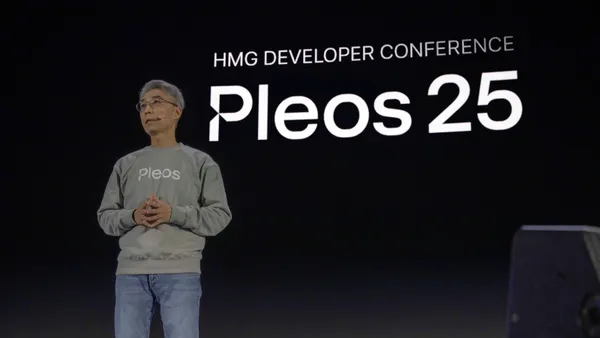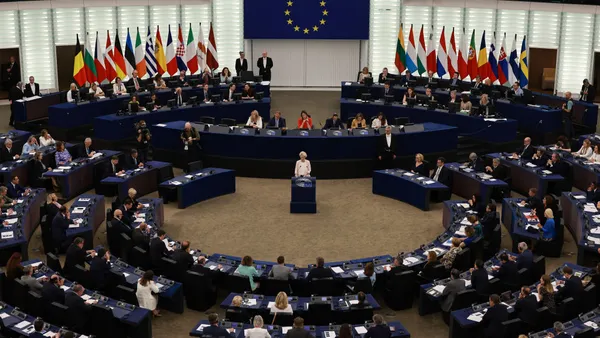Hyundai Motor Group propelled its software-defined vehicle strategy forward in late March as it announced a new mobility software brand and technology platform.
The automaker launched “Pleos” at its Pleos 25 developer conference in Seoul on March 28, according to a press release. The end-to-end platform will integrate high-performance vehicle chips and controllers, a connected vehicle operating system, cloud infrastructure, and mobility and logistics optimization for connected fleets.
The Pleos ecosystem's proprietary vehicle operating system is based on a scalable, zonal-based electrical/electronic architecture designed to boost the performance of its software-defined vehicles. Hyundai will also launch a “Pleos Connect” next-generation infotainment system in Q2 2026, which it plans to install in 20 million vehicles by 2030.
The news comes as Hyundai and other major automakers work to launch connected and software-based vehicles that can continuously be updated to deliver new features, and generate new revenue streams. These plans include new collaborations with technology partners that have traditionally operated outside of the auto industry.
Hyundai says the launch of Pleos is a significant step towards its evolution into a mobility tech company to achieve “Cloud Mobility,” a comprehensive ecosystem of connected mobility software.
“In the rapidly changing automotive industry, Hyundai Motor Group has been dedicated to SDV development since 2023,” the automaker said in the release. “Today, starting with Pleos 25, we are transforming into a company providing software-centered mobility experiences.”
Here's a look at two key aspects Hyundai shared at Pleos 25.
1. A new, smartphone-like interface
Hyundai's new infotainment system — called Pleos Connect — will feature a smartphone-like interface.
The infotainment screen, which is based on Android Automotive OS, will include split-view and multi-window functions, and offer customizable, user-friendly in-vehicle features, according to the press release.
Pleos Connect will also feature in-vehicle AI-powered voice technology called “Gleo AI” for intelligent control of vehicle functions using voice commands. Hyundai customers will be able to create a unique user profile and access their personalized settings from any Pleos Connect-based vehicle.
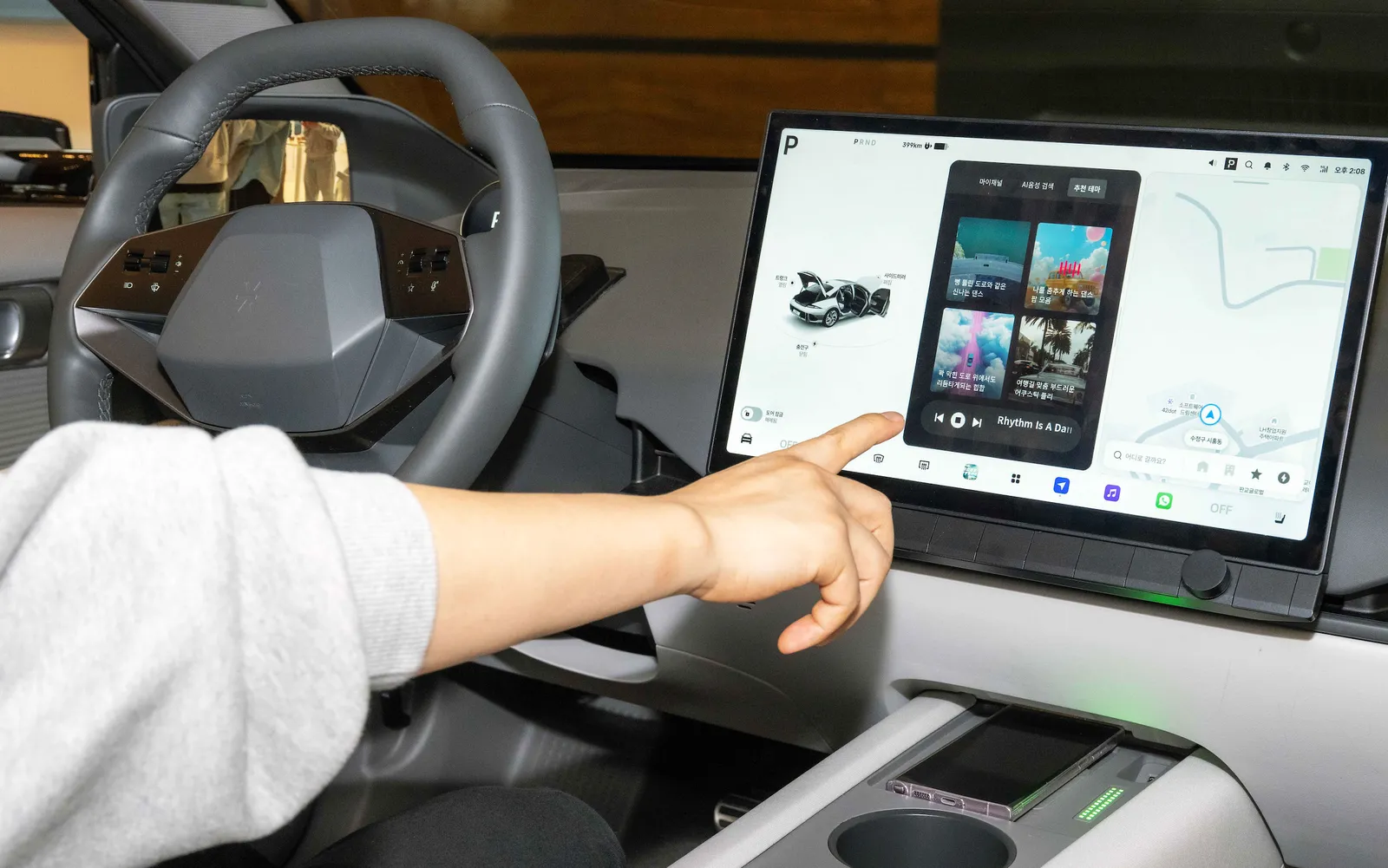
2. A new platform for developers to create in-vehicle apps
Hyundai is also launching a “Pleos Playground” for software developers to create in-vehicle apps for the automaker’s future software-based vehicles running Pleos Connect.
Pleos Playground will offer feature-rich software development kits that support plug & play functionality to test software in a real-world vehicle environment during the development process, according to the press release. Additional tools include design guides, application programming interfaces and sample code.
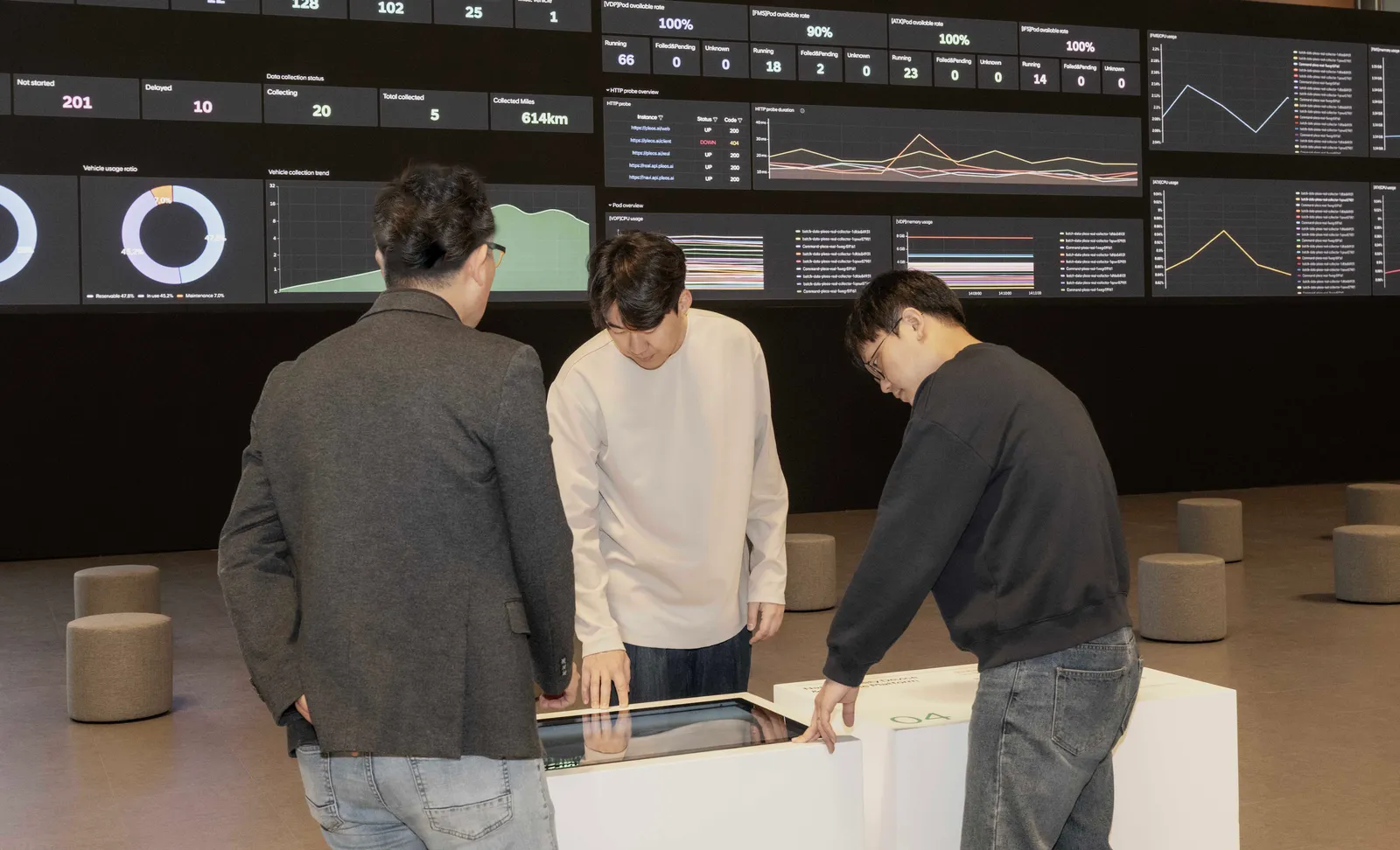
Developers will be able to distribute their apps through an “app market” where Hyundai customers can download them to their vehicles. The automaker says it will continually expand its developer support programs and partnerships based on its open ecosystem.
“Pleos serves to create a connected mobility experience expanding from a vehicle to fleets, hardware to software, and ultimately to the entire mobility infrastructure and cities,” the automaker said in the release.
Hyundai’s future vision for the Pleos ecosystem also includes connecting its software-based vehicles to smart city technology.
To prepare for the era of SDVs, Hyundai and its sister company Kia Corp. reorganized their research and development divisions in January of last year. The reorganization included establishing a new advanced vehicle platform division.



